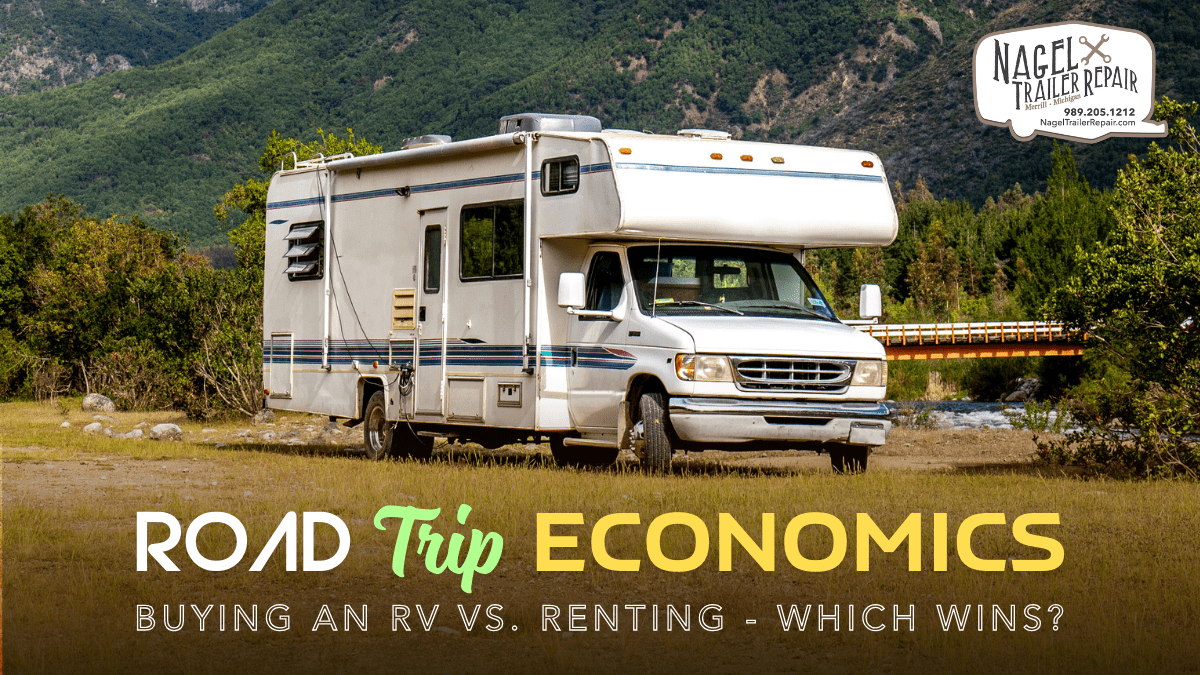Road trips evoke a sense of freedom, exploration, and adventure. The decision to embark on one often involves choosing between buying an RV or renting one. Both options offer distinct advantages and drawbacks, especially when considering the economics involved. Let’s delve into the financial aspects of buying versus renting an RV to determine which might be the better choice for your road trip endeavors.
The Case for Buying an RV
Initial Investment : Purchasing an RV requires a substantial upfront investment. New RVs can range from tens of thousands to hundreds of thousands of dollars, depending on the size, features, and quality. However, this initial cost can potentially be offset by the long-term savings in rentals, especially if you plan frequent road trips or extended travel periods.
Long-Term Savings : The ownership of an RV eliminates the recurring expense of renting. Over time, the accumulated costs of multiple rentals could surpass the initial investment of buying an RV. Moreover, owning an RV allows for more flexibility and spontaneity in trip planning without being confined to rental schedules and availability.
Resale Value : One advantage often overlooked is the potential resale value of an RV. Although it depreciates over time, a well-maintained RV can retain a significant portion of its value. This means that when you decide to part ways with your RV, you can recoup a portion of your initial investment.
Customization and Personalization
Owning an RV grants the freedom to customize and personalize it according to your preferences. Upgrades, modifications, and renovations can enhance comfort and functionality, making it tailored to your specific needs.
The Argument for Renting an RV
Lower Initial Cost : Renting an RV requires a fraction of the initial investment compared to purchasing one. This can be advantageous for occasional travelers or those unsure about committing to RV ownership. Renting allows access to different types and models of RVs without the financial commitment of ownership.
Maintenance and Repairs : One of the significant perks of renting an RV is that maintenance and repair costs typically fall on the rental company. This alleviates the responsibility and financial burden of upkeep that comes with owning an RV. For occasional travelers, this can be a cost-effective choice.
Flexibility in Models and Upgrades : Renting offers the flexibility to choose different RV models for various trips. Whether you need a smaller camper for a weekend getaway or a larger motorhome for a cross-country journey, renting allows you to select the most suitable option without being tied to a single vehicle.
Insurance and Storage : When you rent an RV, insurance costs and storage concerns are often handled by the rental company. This relieves you from the ongoing expenses associated with insuring and storing an owned RV.
Which Option Wins?
Determining whether to buy or rent an RV hinges on various factors, including frequency of use, travel preferences, budget, and long-term plans. For frequent travelers or those considering extensive road trips, purchasing an RV might offer more cost-effective advantages in the long run, considering the initial investment can be amortized over multiple trips.
However, for occasional travelers who prioritize flexibility and wish to avoid the responsibilities of ownership, renting an RV might prove to be a more economical choice. It provides the freedom to select different models as per the trip’s requirements without being tied down by maintenance and storage obligations.
In the end, the decision between buying and renting an RV boils down to personal circumstances, financial considerations, and travel preferences. Whether you opt for ownership or choose the flexibility of rentals, the joy of embarking on a road trip and exploring new destinations remains the ultimate reward.
Conclusion
In the tug-of-war between purchasing an RV versus renting, the scales tip based on personal needs and preferences. Buying an RV promises long-term savings, customization freedom, and potential resale value. Yet, renting offers flexibility, lower upfront costs, and absolves the responsibilities of maintenance and storage. Ultimately, the decision hinges on how frequently you hit the road and your inclination towards commitment or flexibility. Whether you’re considering RV camper parts in Michigan for a purchased RV or exploring rental options, the essence of a road trip remains: the joy of the journey and the thrill of exploration. The choice, in the end, is a reflection of your unique travel style and financial considerations, ensuring that every adventure on the road holds its distinct allure, irrespective of the path you choose.

